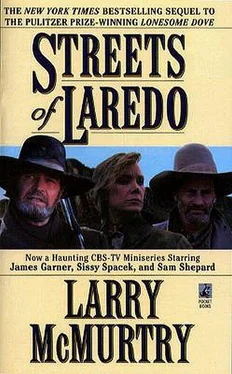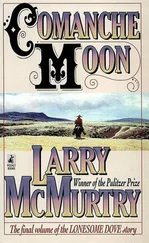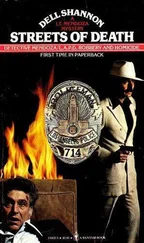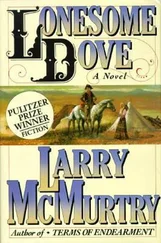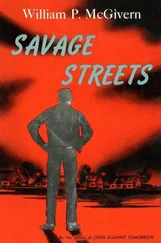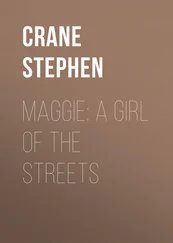Maria knew she could not delay any longer.
She had to do her work, but she could not make her worry go away.
It was six hours before the baby came. Negra had been in labor a long time, and Maria's fear was that the young girl would become too weak to help.
The girl's small, unprepared body would have to force the baby out without help from the mother's will.
Already, Negra's will was almost exhausted. Maria had to sit with her patiently, soothing her and coaxing her to rest between pains. Negra was terrified of the pain; she thought she must be dying.
Maria soothed her and explained to her that it was the necessary pain of childbirth.
"Soon you will have a fine baby," Maria told her. The water finally broke, and Maria became hopeful. The baby was turned properly and did not seem to be too large. She had sent Jorge away. She did the work with two women, old sisters who had made their lives together. They were crafty old women, and greedy. Each wanted to outlive the other so as to get the other's possessions. They had seen many children born and were indifferent to Negra's pain. From time to time they smoked tobacco, in little cigarettes they rolled themselves. Soon the floor of the little room was littered with cigarette papers the old women had dropped. But they knew the business of birth and helped efficiently when the pains came. Their names were Juana and Josia. Some people thought they were twins, for they looked very much alike. But each denied being the other's twin, and each claimed to be the younger sister.
"She was two when I was born," Juana claimed.
"She is a liar, she will go to hell," Josia said. "She was already three when I was born." Maria didn't particularly like the old sisters. They were rude to one another, often having loud, harsh arguments just when the young mothers needed quiet. But they were the only ones she could find who knew what to do during difficult births, and so she called them in. They looked at life with skeptical eyes, which sometimes irritated Maria. She felt she knew as well as any woman that life was a thing of sadness; but it was not all sadness, and there were times for hope. And one time for hope was when a baby was being born.
Maria herself always began to have hopes for the babies she birthed, as soon as she saw them.
Perhaps as they grew they would be lucky, have health, find good women or men to marry, rise above poverty, and be spared disease and loss. Few were spared. But each time when the baby was in her arms and the moment of peace came, Maria let her hopes rise. She smiled at the little child and bathed it in warm water. She wanted to welcome it to life; perhaps it would be one of the lucky ones.
So it was when Negra's baby finally came--it was a boy. Maria was tired, but she liked the look of the little male child. He cried with spirit, the spirit of life. Maria smiled at him and whispered to him. He was to be named Jorge, too, after his father. He was a fine boy, and Maria could not help smiling at him. The mother was asleep, too tired to need her smiles. The little boy wiggled and cried, and Maria took him outside to show him to his father. The tortured look left Jorge's face and he looked at his son with surprise, the surprise men so often showed when they saw that a living human had been created from the actions of love--actions they had taken long before and perhaps had forgotten.
"This is a good boy, I like the way he wiggles. He will give you lots of trouble when he grows up and can walk," Maria told him.
Then, as she was about to take the baby back inside so the old women could cleanse him of the birthing blood, Maria looked around for her children.
Several times during lulls in the labor, she had gone out to speak to them briefly. They sat with the goats between the shoemaker's house and the butcher's shed. While the butcher was butchering the pig, Maria's children were just sitting.
"It's cold. I want to go back to Se@nor Call," Teresa said, each time. She was sullen, as she often was if her mother denied her her way.
"You can come in where I am, only sit in the kitchen," Maria told her.
"No, I don't want to sit in that kitchen.
I would rather be cold," Teresa replied.
Then the crisis arrived, and Maria forgot about the children. Once when Negra was screaming, she heard the cowbell and was reassured. She had to concentrate on what she was doing, and she could not listen every moment for a cowbell when the little room rang with the full screams that came with a birth.
Now, though, with little Jorge safely born, she turned to look for Teresa and Rafael and didn't see them. The goats were still there, but not her children. She ran to where the goats were, scattering them in her fear. Then she saw the cowbell lying in the dirt. Joey had taken it off Rafael--why hadn't she known he would?
Fear chilled Maria so, that she almost dropped the baby. She ran with him to Jorge and thrust the baby into his hands.
"Take him to the sisters," she said. "Did you see Joey?" "No--how do I hold him?" Jorge asked.
Maria had no time to instruct the new father; he would have figure out for himself how to hold his son.
She ran to the butcher, who had taken the pig's hooves and ears and was putting them in a sack.
Most of the pig had been cut up. Parts were heaped on a bloody table, and other parts were piled on strips of sacking.
"Did you see Joey?" Maria asked.
"You are bloodier than I am, and I've butchered a pig," Gordo told her. He was a little disgusted with the woman, for she had blood all over her arms. Still, she was shapely, and she was his neighbor. When she cleaned herself up he thought he might go visit her, perhaps taking her a little sausage. He might ask her to make him menudo or some other tasty dish.
"No, Joey wasn't here," he told her.
Maria knew better--Joey had been there.
She had to have help, and there was only Gordo, the butcher.
"He was here. He's taken my children," Maria said to him. "Come and bring a gun, don't wait!" In the desperate hope that Teresa had disobeyed her and taken Rafael home, Maria ran to her house. She had her knife in her hand.
Call was laying outside the back door when she got there. He had hobbled out, using a chair for a crutch, and he had a pistol near him. But the chair was too short to be a good crutch, and he had fallen again. He was lying on his back. His leg was bleeding, and his eyes were open.
"Did he come?" Maria asked.
"He came--I can't do anything," Call said.
"I can't do anything," he said, again. He was so weak that she could barely hear him whisper, and it was surprising that he could even have hobbled the few steps he had.
Maria felt fear shaking her, more powerful than any fear she had felt in her life. She did not have time to move Captain Call back to bed.
She grabbed his pistol.
"What did he say, se@nor?" Maria asked. "Did he say anything?" "No," Call said. "He came in and looked at me and left. He's wounded." "Not wounded enough. I have to take your gun," Maria told him.
Call lay in helplessness. He had wanted to kill the boy, but he had no strength and no way. The boy had simply looked at him insolently for a moment and left. He was not a large boy, but he had a cold look. Call had rolled off the bed, pulled himself up with the chair, and found his pistol. But it was no good. He was too weak, and he soon fell. The world was swimming, and he couldn't see well. He could not make himself rise, and even if he had risen it would have done no good. Joey Garza was gone.
Call was helpless and he had failed, again.
Maria felt helpless too, because she didn't know where to look for her children. Joey could not have gone too far, since it had only been a short time that she last looked out and had seen Rafael sitting amid his goats. But where had he gone? If he had put the children on a horse, she would have no chance of catching them. She could not track a horse, and no one in the village could, either. Joey might take her children far away, where she could never follow or find them. She ran to the cantina. Two vaqueros were there drinking. Perhaps one of them had seen something.
Читать дальше
